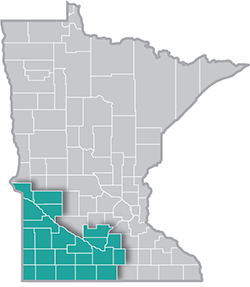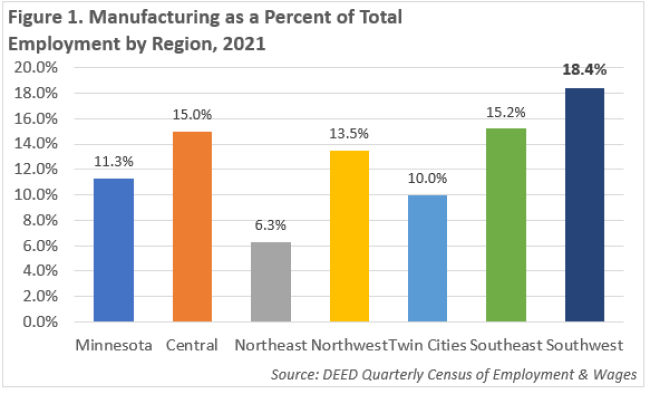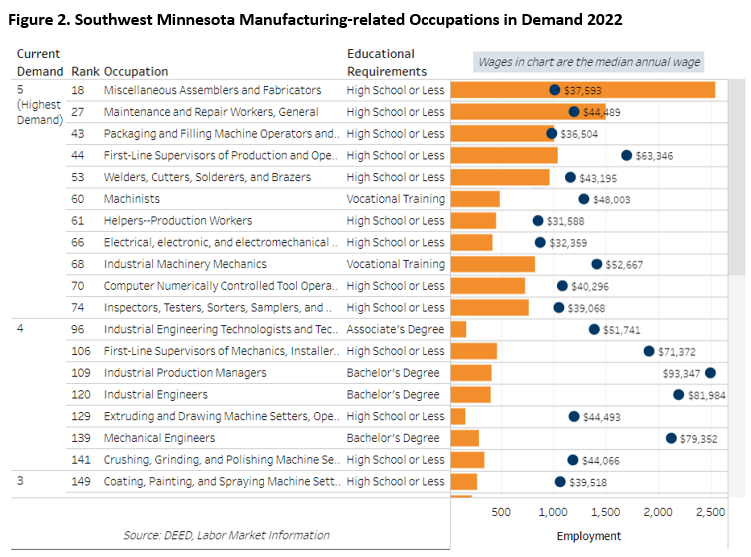 Southwest Minnesota is a national leader in agricultural production, and renewable energy.
Southwest Minnesota is a national leader in agricultural production, and renewable energy.
The region's thriving manufacturing sector includes food processing, machinery, printing, metal products, and computers and electronic products.
Want the freshest data delivered by email? Subscribe to our regional newsletters.
9/22/2022 9:00:00 AM
Luke Greiner
Manufacturing is the largest employing industry in Southwest Minnesota, accounting for over 18% of all jobs in the region. That makes the region unique – it is the only planning region (of 6) where Manufacturing is still the largest employing industry, while all other regions now rely more heavily on Health Care & Social Assistance (Figure 1).

More than 600 manufacturing establishments provide roughly 31,000 jobs with average annual wages nearing $58,000 which is almost $10,000 more than average wages across the total of all industries in the region. The tight labor market and high demand for goods has pushed Manufacturing wages and openings higher than ever before, with Southwest Minnesota manufacturers posting a record number of about 1,600 job vacancies in 2021. The median wage offer in Manufacturing climbed above $19 per hour by the end of 2021, and is likely still increasing as demand remains high in 2022.
Production occupations that offered the largest numbers of openings include Inspectors & Testers with a median wage offer of $14.92, Assemblers & Fabricators ($14.32), Coating & Painting Machine Setters ($16.67), and Filling Machine Operators ($17.15). However, there are many highly demanded manufacturing related occupations in the region.
Assemblers & Fabricators are ranked as the Manufacturing-related occupation in highest demand, requiring a high school diploma, and paying a $37,593 median wage. Other higher paying, in-demand Manufacturing-related occupations include General Maintenance & Repair Workers ($44,489 median wage), First Line Supervisors of Production Workers ($63,346), First Line Supervisors of Mechanics & Installers ($71,372), Industrial Engineers (81,984), and Industrial Production Managers ($93,347).
A variety of education levels are needed in Manufacturing, ranging from a high school diploma to a bachelor's degree or higher. Gaining Manufacturing skills and knowledge in high school is a great way for students to bring more value to employers and gain access to higher paying jobs earlier in their careers. With plentiful job openings that pay better than many other industries, Manufacturers provide the region with a resilient economy and excellent careers. Students and jobseekers can find more information about in-demand careers in manufacturing and STEM by using the Career Pathways tool!

Contact Labor Market Analysts Luke Greiner at 320-308-5378.